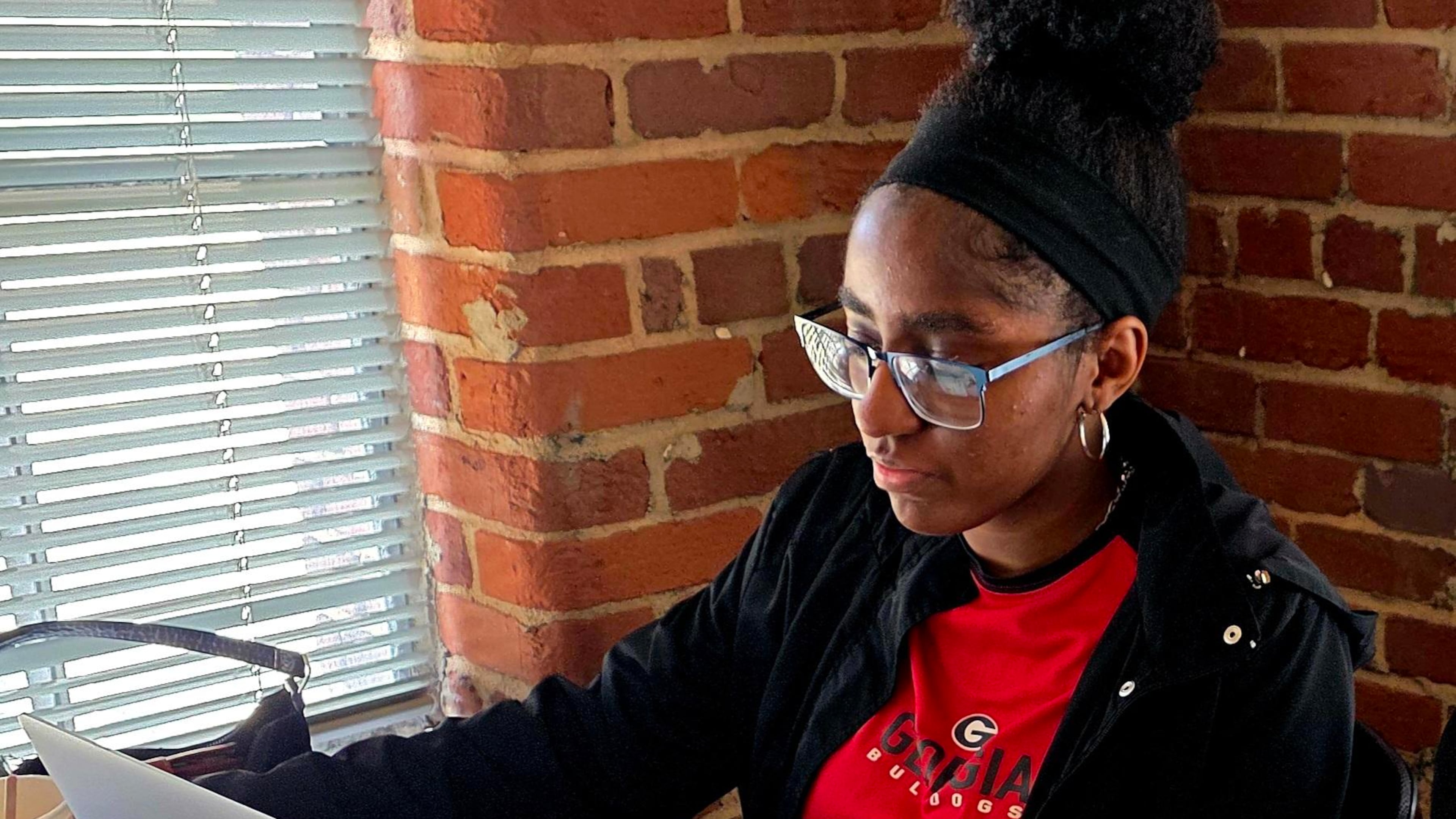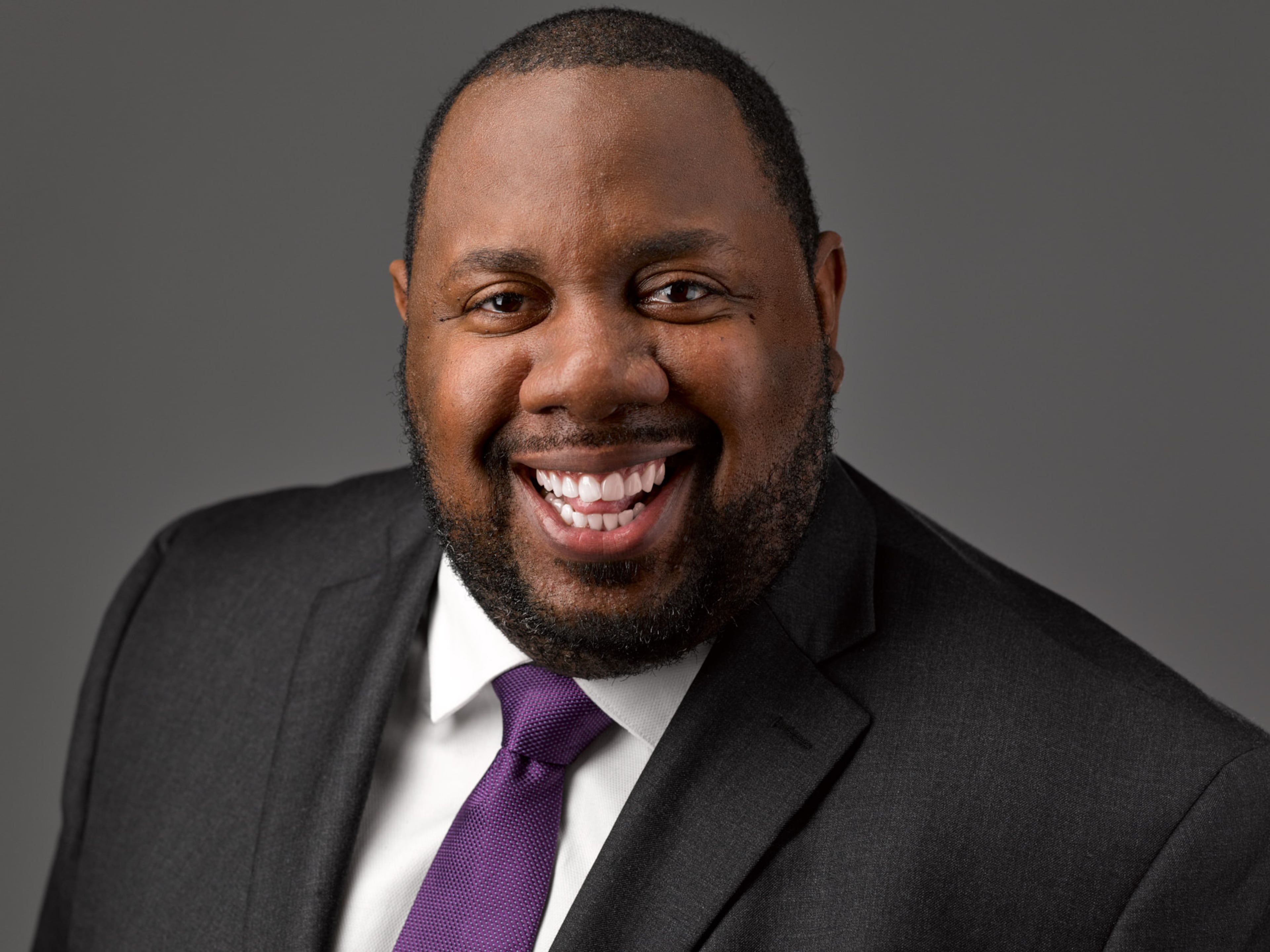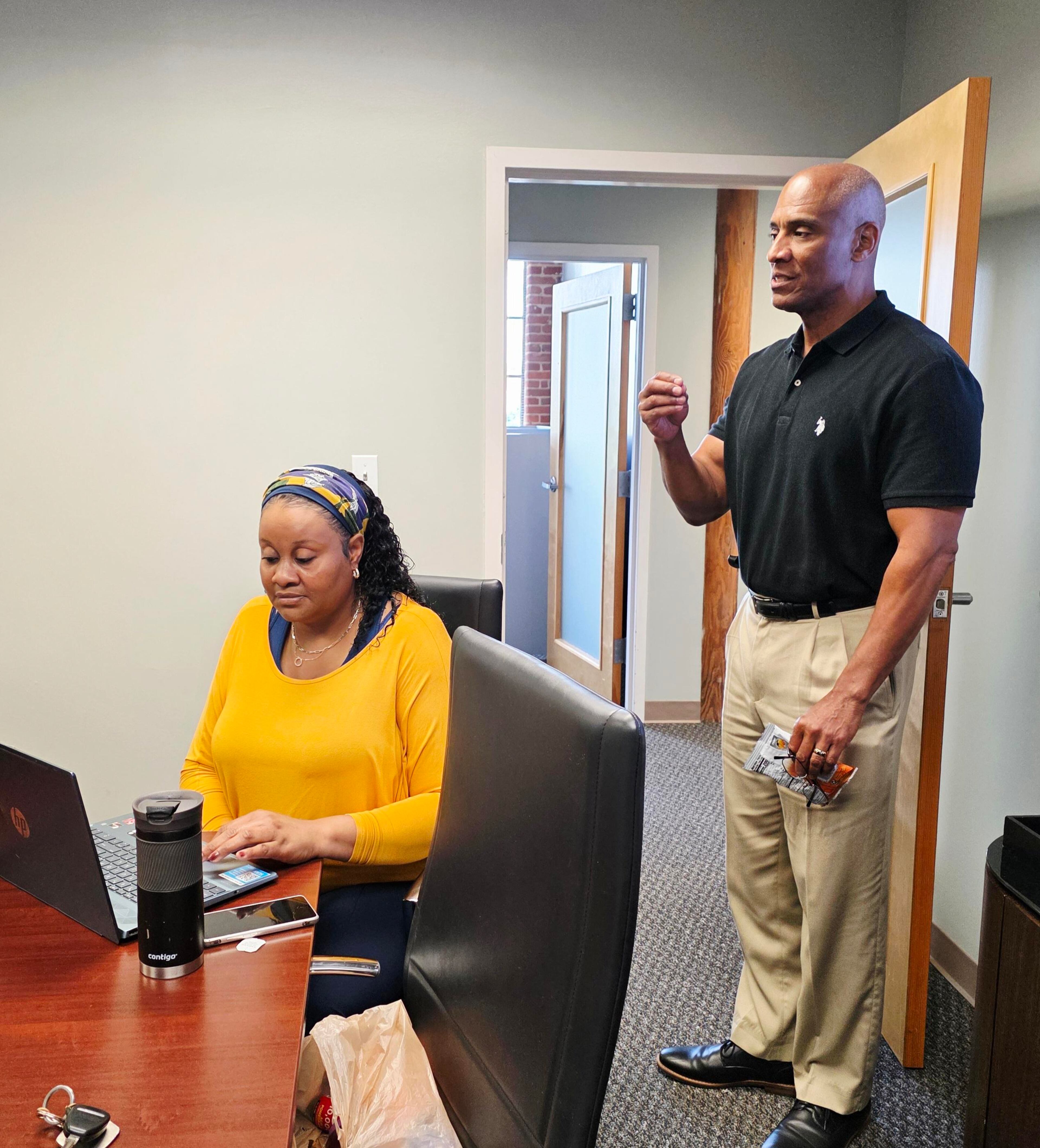Strive Atlanta is changing lives of those in need of a hand in South Fulton

For 21-year-old Markia Williams, the path after high school was anything but clear.
A 2022 graduate of Elizabeth Andrews High School in Stone Mountain, Williams finished high school late after failing a class. She found herself overwhelmed with self-doubt — unsure whether college or a career was even possible.
“I was thinking, ‘Oh, I’m not going to get into college. I’m not going to do anything,’” Williams said. “So I was at a blank for so long.”
That changed when she found out about Strive Atlanta, a workforce development program launched in 2020 to connect residents primarily in South Fulton — a community grappling with economic disenfranchisement — to real career opportunities.
“I was like, ‘I don’t have any skills and I don’t know the direction I want to go,’” Williams said. “So let me just come here to figure out what they can do to help me. And they helped me a lot, so I’m glad I came here.”

On Wednesday, Williams will be one of 14 students who will graduate from the latest cohort of the Strive program.
Strive Atlanta is part of a national network of workforce programs modeled after the original initiative in New York City’s Harlem. In 1984, amid the crack epidemic, rising unemployment and widespread disinvestment in Black communities, Strive was launched to address joblessness in Harlem’s most underserved neighborhoods.
Founded by Rob Carmona, an Afro-Latino social worker and former gang member, Strive adopted an out-of-the-box approach. The mission was not to just teach job skills, but transform the lives and mindsets of the long-term unemployed, formerly incarcerated and those living in deep poverty.
What began in the 1980s as a tough-love boot camp has evolved into a more holistic program — one that offers wraparound services and lifelong support. Today, the training emphasizes soft skills like mindset, professionalism, behavior, and personal accountability.
According to Strive’s 2024 annual report, the program has served more than 85,000 people nationwide since its inception, with job placement rates often exceeding 70%.
Since 2020, the model has expanded to Birmingham, Alabama; New Orleans; Newark, New Jersey; and Atlanta.
The federal Job Corps program is undergoing significant upheaval marked by a nationwide “phased pause” in operations by June 30, including closures in Atlanta and Albany. Amid Job Corps’ uncertainty, projected budget deficits, political scrutiny over safety concerns, low graduation rates and ongoing legal challenges, the need for resilient, locally rooted alternatives in Georgia has never been more urgent, said Jomal Vailes, executive director of Strive Atlanta.
“Our students are often being seen for the first time,” Vailes said. “It’s a pathway to possibilities. It is not just jobs but careers.”
Strive Atlanta’s focus on South Fulton addresses a critical gap in a region marked by economic inequality, he said.

“We were the guinea pig for expansion and scale,” said Vailes, adding that while South Fulton is in the shadow of Hartsfield-Jackson Atlanta International Airport, there is still a “lot of economic disenfranchisement” in the area.
“We didn’t just land here (in Atlanta) for the next ‘sexy city,’” he said. “We saw the need, did the due diligence and came to fill a gap for residents who are disconnected from opportunity.”
Students enter Strive through two main tracks: the Career Path program and the Future Leaders program.
Through the Career Path program, local businesses partner with Strive to prepare students for careers in high-demand fields like logistics and office administration. Students also receive support with housing, health care and transportation.
The Future Leaders program helps close educational gaps for young adults aged 18 to 24, particularly those who have had direct or indirect encounters with the justice system.
This year, nearly 200 participants will go through Strive Atlanta’s two programs.
Graduates earn industry-recognized credentials — including Occupational Safety and Health Administration 10 certification, forklift operation, inventory control, flagger operations and certified associate skills — all at no cost to them.
Later this year, Strive Atlanta will launch a health care track, training students for technician roles as a gateway into medical careers.
“This is about sustainability,” Vailes said. “Helping people shift from survival to stability.”
For Williams, forklift certification was an unexpected but welcome opportunity.
“My first job was in a warehouse, and I really liked the fast-paced work environment. So when they said ‘Maybe you want to do forklifting?’ I was like, yeah,” she said with a laugh.
“I’m used to working in a fast-paced environment,” Williams said. “I’m used to lifting 50 pounds. I’m kind of the tomboy of the family — usually the one that builds things. I’m used to manhandling things.”
Her experience is echoed by Takisha Ellis of Conyers, who enrolled in Strive’s Career Path program after years away from the workforce.

“When I was doing this on my own, I wasn’t getting callbacks or interviews,” Ellis said. “Strive helped me revamp my resumeand rebrand myself. It increased my confidence to be successful when I apply for jobs.”
For Williams, Strive is a steppingstone — a way to earn a living while pursuing her dream of becoming an anesthesiologist. She will begin college at a technical school in the fall and plans to work as a forklift operator to pay for tuition.
She now shows up to interviews in professional attire — blouses and business suits provided by the program.
“This is not my end goal,” she said. “They told me it’s OK to stack money while I’m in college.”
For her, the program bridged the gap between uncertainty and a tangible future.
“This program helped me find skills, confidence and hope,” she said. “It’s not just about a job — it’s about what I want to be.”
